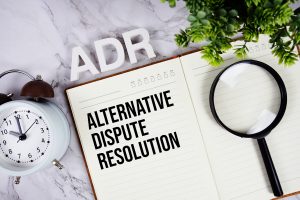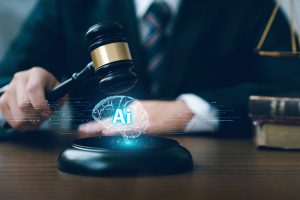 Once you have started your own business, one of the first decisions you must make is choosing the form in which you want to conduct your business – whether as a sole proprietorship (or partnership, in case of more than one founder) or by organizing your business in an entity form. Your choice will lay the foundations for your business and guide tax efficiencies, liability exposure, administrative ease, attractiveness to investors, and therefore, your ability to scale. Also, choosing a form that best fits your needs helps avert disputes and prevent misunderstanding among the stakeholders by defining their ownership, roles, and duties in the business.
Once you have started your own business, one of the first decisions you must make is choosing the form in which you want to conduct your business – whether as a sole proprietorship (or partnership, in case of more than one founder) or by organizing your business in an entity form. Your choice will lay the foundations for your business and guide tax efficiencies, liability exposure, administrative ease, attractiveness to investors, and therefore, your ability to scale. Also, choosing a form that best fits your needs helps avert disputes and prevent misunderstanding among the stakeholders by defining their ownership, roles, and duties in the business.
Whether your business should be organized as a corporation, partnership, limited liability company (“LLC”) or a sole proprietorship, depends on various factors including your goals for the business, whether you intend to raise outside capital, whether your business will be a lifestyle business, your desired tax treatment for the business, whether you intend to offer equity to employees and service providers, and so forth. However, in this blog we limit our discussion to adding our two cents to the ever-going debate of whether a new business should organize as a C-corporation (“C-Corp”) or an LLC. Our conclusion, to no ones’ surprise we hope, is there is no one-size-fits-all answer.
Arguably, one of the biggest drawbacks of a C-Corp is the potential for double taxation. A C-Corp is a separate taxpayer independent of its stockholders. The income earned by the C-Corp is first taxed at the entity level and then again in the hands of its stockholders when the net income is distributed to them as dividends[1]. For the same reason, distributing cash to the owners on an ongoing basis is difficult to accomplish with a C-Corp (though by no means impossible). Also, to avail the protection from personal liability that C-Corp affords its owners (and to avoid the piercing of the so called “corporate veil”), it is important that a corporation complies with all corporate formalities stringently. LLCs (which also shields its owners from personal liability) offer much more flexibility in matters of corporate governance. Also, statutorily mandated fiduciary duties of the board of directors of a corporation cannot be eliminated by the corporation’s owners via a private agreement, whereas the members of an LLC have much flexibility to reduce (or altogether eliminate in some states) a manger’s (or managing member’s) fiduciary duties to the LLC and its non-managing members through the LLC’s operating agreement.
 A founders’ agreement is a contract between co-owners of a business that outlines each of their roles and responsibilities, ownership interests, and rights in the business. It may be a standalone document or may be incorporated into a shareholders’ agreement, a partnership agreement, or an LLC agreement. In this piece, we focus on pre-incorporation founders’ agreement—the first document we recommend be put together just as soon as two or more persons get into business together as co-owners. This will help protect the interests of each co-owner and avoid any potential disputes among them later.
A founders’ agreement is a contract between co-owners of a business that outlines each of their roles and responsibilities, ownership interests, and rights in the business. It may be a standalone document or may be incorporated into a shareholders’ agreement, a partnership agreement, or an LLC agreement. In this piece, we focus on pre-incorporation founders’ agreement—the first document we recommend be put together just as soon as two or more persons get into business together as co-owners. This will help protect the interests of each co-owner and avoid any potential disputes among them later. Business Lawyers Blog
Business Lawyers Blog










